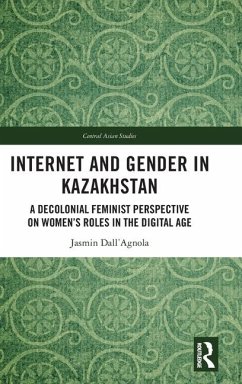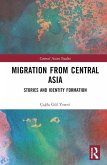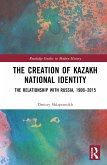Internet and Gender in Kazakhstan offers an empirically rich and theoretically compelling analysis of how the Internet is influencing societal attitudes towards women's roles and agency in Kazakhstan.
Equipped with intimate perspectives from the wider public in five different regions of Kazakhstan, the book conceptualises, theorises, and analyses the relationship between the Internet and gender-related attitudes in Kazakhstan through a decolonial feminist lens. The author argues that digital communication technologies' effect on societal attitudes towards gender roles and norms in Kazakhstan is conditional on Internet and social media penetration rates, state-led digital censorship, and the ways in which local activists and conservative bloggers use their online presence.
The book will be of interest to policy makers and researchers in the field of media studies, gender studies - in particular women's rights, LGBTQ+, feminist activism, and gender-based violence - and Central Asian studies.
Equipped with intimate perspectives from the wider public in five different regions of Kazakhstan, the book conceptualises, theorises, and analyses the relationship between the Internet and gender-related attitudes in Kazakhstan through a decolonial feminist lens. The author argues that digital communication technologies' effect on societal attitudes towards gender roles and norms in Kazakhstan is conditional on Internet and social media penetration rates, state-led digital censorship, and the ways in which local activists and conservative bloggers use their online presence.
The book will be of interest to policy makers and researchers in the field of media studies, gender studies - in particular women's rights, LGBTQ+, feminist activism, and gender-based violence - and Central Asian studies.








